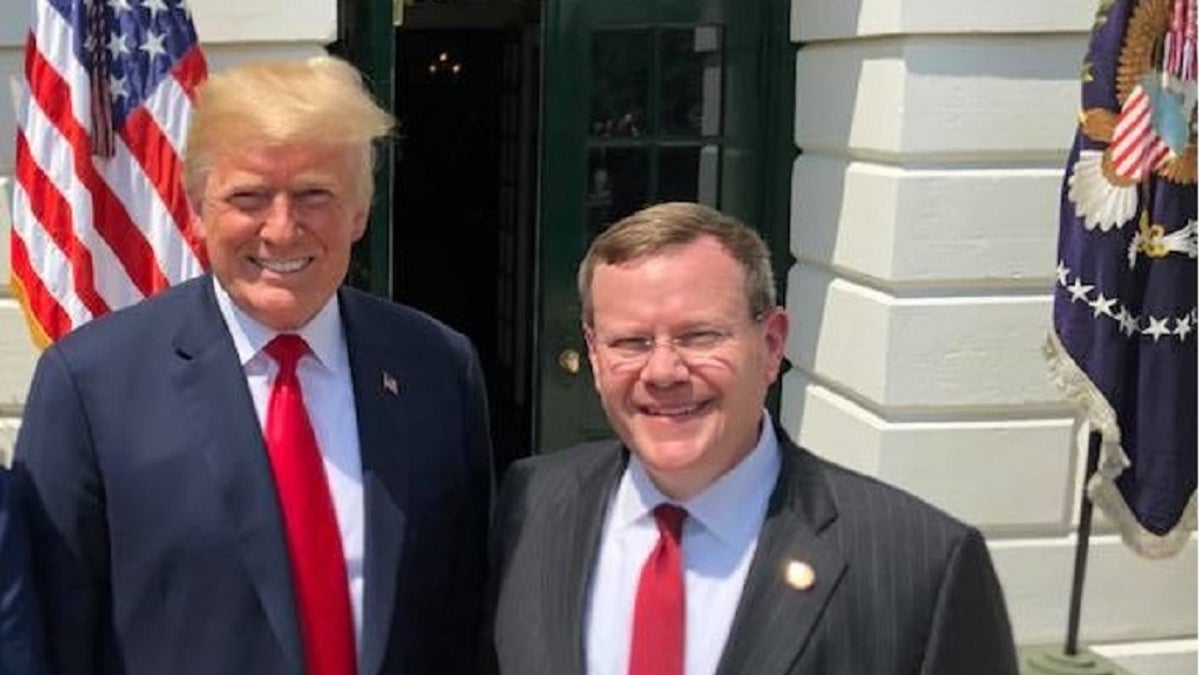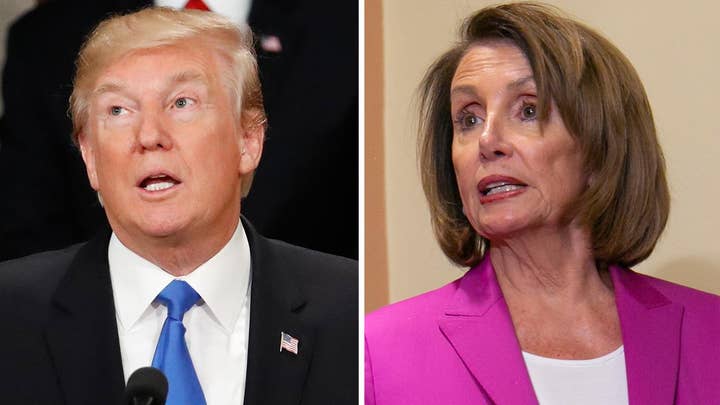
North Carolina House Speaker Tim Moore, shown with President Trump in an undated photo, became the latest state lawmaker to invite the president to deliver his State of the Union address away from Washington, D.C. (State Rep.Tim Moore)
With plans for President Trump's annual State of the Union address uncertain, a North Carolina state lawmaker has extended the latest invitation for the president to deliver the speech in a setting away from Capitol Hill.
Tim Moore, a Republican who serves as speaker in North Carolina's state House of Representatives, issued a letter Friday asking Trump to give the speech in the House chamber of North Carolina's Statehouse in Raleigh.
“I attended your first State of the Union address in Washington D.C. last year,” Moore wrote. “It was an unforgettable experience to witness this tradition of our commander-in-chief’s speech to a joint session of Congress.
HOW THE STATE OF THE UNION BECAME A BROADCAST EVENT
“I also believe taking your message outside of the nation’s gilded capital to a state government venue reflects the priorities of your administration, and those of our Congress, to create success not only for federal institutions and programs but for the American people they serve,” the letter continues.
"Taking your message outside of the nation’s gilded capital to a state government venue reflects the priorities of your administration, and those of our Congress, to create success not only for federal institutions and programs but for the American people they serve."
The State of the Union address is typically delivered early each year from the U.S. House chamber at the Capitol in Washington D.C. But plans for Trump to deliver this year's speech on Jan. 29 were rattled last week when newly installed House Speaker Nancy Pelosi, D-Calif., recently urged the president to postpone the speech, or deliver it in writing, or from the Oval Office.
Pelosi cited potential security concerns on Capitol Hill resulting from the partial government shutdown that began Dec. 22. But the Secret Service and Department of Homeland Security quickly responded to Pelosi's concerns, assuring that the Capitol would be fully secured if the president were to visit.
FIVE WAYS TRUMP CAN TURN PELOSI'S STATE OF THE UNION PLOY INTO A COMMUNICATIONS VICTORY
“Sadly, given the security concerns and unless the government re-opens this week, I suggest that we work together to determine another suitable date after the government has re-opened for this address or for you to consider delivering your State of the Union address in writing to Congress on January 29,” Pelosi said.
TRUMP DENIES PELOSI AIRCRAFT FOR FOREIGN TRIP, AFTER CALL FOR STATE OF THE UNION DELAY
After Moore invited Trump to North Carolina, however, that state's Democratic Party criticized the gesture, calling it an attempt to distract voters from news that the FBI had questioned a Republican state legislator about an anonymous letter claiming Moore had pushed legislation favorable to one of his legal clients, the News & Observer of Raleigh reported.
“We know Speaker Moore is desperate to distract from today’s news that the FBI is looking into his shady ethics, but he should be using his office to advocate for those hurt by the government shutdown, not push a political stunt,” executive director Kimberly Reynolds said. “This shutdown is hurting people trying to recover from recent hurricanes and forcing schools to ration our kid’s lunches, and every North Carolina public official should be working to end it today.”
CLICK HERE TO GET THE FOX NEWS APP
Previously, another Republican state lawmaker – in Michigan – also invited Trump to deliver his speech in the state Capitol of that state, in Lansing.
“There is no higher loyalty or obligation than to the people we serve and the communities we represent, and no partisan gamesmanship should stand in the way of that service,” new state House Speaker Lee Chatfield wrote in his letter to the president. “Because of that, this chamber and this speaker are willing to put people before politics for this important occasion.”
The White House hasn't yet announced what the president will do regarding the State of the Union speech in the wake of Pelosi's request that he not appear at the U.S. Capitol on Jan. 29.





